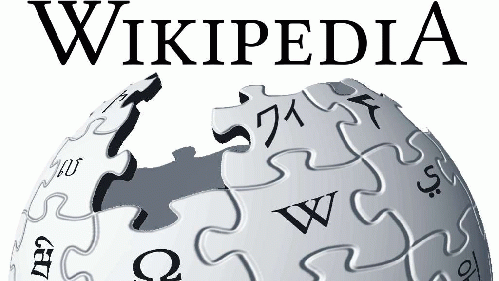Do you know what Hillary Clinton and Wikipedia have in
common? I do. They're both waging wars of words against Russia. You can hear it
in Clinton's public comments and you can see it in the articles of Wikipedia.
The message is clear. It seems the goal is to get Russia and its president no
matter what the facts.
But there's even a more sinisterly suspicious connection between Clinton and
Wikipedia.
What is it? Before I reveal that, let's first examine some of the commonality
they share in the wars of words.
Maybe she's right. But she offers no substantiation for her inflammatory claims. And one wonders when she was intimate enough with Putin to see whether he has a soul or for Putin to have confided in her whatever visions he cherishes.
My hunch is that Hillary was just mouthing off with scurrilous allegations on things she really knows nothing about.
Meanwhile, Wikipedia has plenty of equally scurrilous assertions. For example, it quotes British historian Max Hastings describing Putin as "Stalin's spiritual heir." Then there's also the allegation that Putin is a pedophile, and lots more.
These are the same kind of specious allegations heard from Hillary. But Wikipedia has a different modus operandi. Whether factually right or wrong, Hillary at least has the courage to speak her own mind. Wikipedia's MO is to quote or reference other sources. It claims to use only reliable sources. But from my own careful examination, I've found that is a false claim.
Here's an example I found while writing my book Ukraine in the Crosshairs. One Wiki article states, "The Ukrainian government released photos of soldiers in eastern Ukraine, which the US State Department said showed that some of the fighters were Russian special forces." Wikipedia references a CNN story.
But CNN was presenting evidence that has been widely discredited. The New York Times had fallen for that same fabricated evidence. Later it humiliatingly had to retract its own front-page story on the subject. Nevertheless, Wikipedia continues to present its fallacious article as though it were factual. Wikipedia's use of "reliable sources" really just amounts to a case of pseudo-objectivity. It may fool the apathetic reader, but it doesn't stand up to serious scrutiny.
I first discovered reason to suspect Wikipedia's political agenda while researching an article for Editors Only, a monthly I publish for online and print publication editors. The article's theme was to be "audience-generated content." And since Wikipedia is a conspicuous example of such, I invited its representative to share some information on Wikipedia's experience with audience-generated content. I wrote to the Wikimedia Foundation, the organization that hosts Wikipedia and raises funds for it.
The response I got said, "Unfortunately, we cannot accommodate your request due to current time constraints." It was signed by "Dasha Burns, On behalf of the Wikimedia Foundation."
So I had written to Wikimedia but received a response not from the organization, but by somebody answering on its behalf. I checked the domain name in Burns' email address. It is "minassianmedia.com."
Out of curiosity I went to the website at that address. All that's there is a simple business card--type page with the company name, address, and phone number, plus the descriptive line "Content + Communications." That's is the whole website. There's not a single link.
Still curious, I googled the company name. That brought me to a website of The Tribeca Disruptive Innovation Awards. In a report, it identified the president of Minassian Media as Craig Minassian.
(Note: You can view every article as one long page if you sign up as an Advocate Member, or higher).






